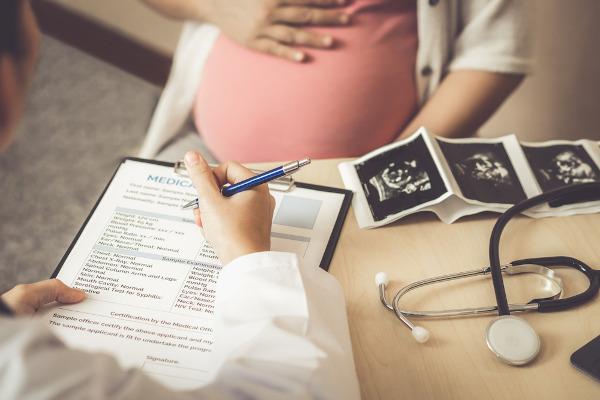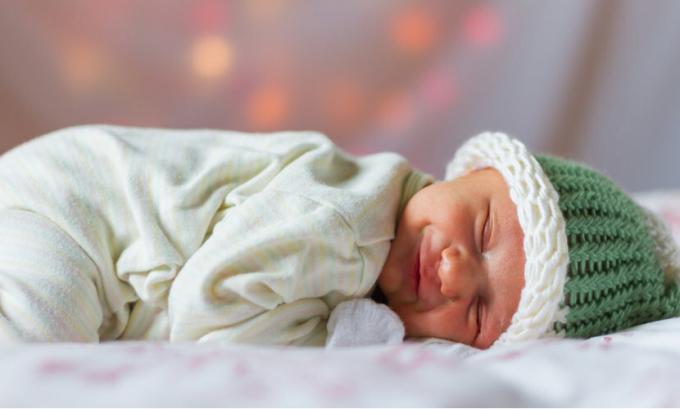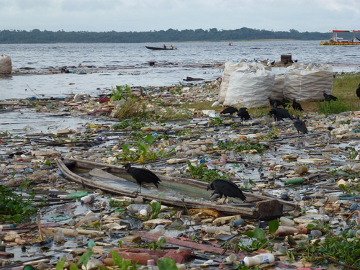Pregnancy and newborn care are two extremely important issues when it comes to human reproduction. Both the pregnancy and the first days of drink are periods that need care and attention.
Pregnancy can be defined as an event that occurs in a woman's body and is the result of the process of fertilization. It lasts about 40 weeks, and at the end we have the birth, which is the birth of the baby. The newborn needs a lot of care, since, during this initial stage of development, it is very susceptible to diseases, for example.
Read too: Importance of breastfeeding - for both mother and baby
Pregnancy
Pregnancy is an event that occurs due to the process of fertilization, in which the oocyte, also popularly called the egg, is fertilized by sperm. After fertilization, the division of the zygote begins, and it moves towards the uterus of the woman. It is in the uterus that the embryo usually implants itself, a process called tion.

Throughout pregnancy, a series of changes take place in the body of the mother and the developing baby.
Breast enlargement, increased sleep and hunger, nausea and tiredness are some of the symptoms that can indicate pregnancy, in addition, of course, to the most well-known symptom: delay menstrual. It is noteworthy, however, that not all women have the same symptoms.During pregnancy, it is important for the woman to make the call prenatal, which consists of medical monitoring during pregnancy. Prenatal care is important not only for the mother's health, but also for ensuring the baby's health. During follow-up, several exams are performed, such as blood counts, blood glucose, urinalysis and tests to identify sexually transmitted diseases. Carrying out these tests is important for early diagnosis of problems that can put the baby and mother's life at risk.
In addition to periodic exams, the mother must be attentive to recommended vaccines for this period. According to the Ministry of Health, the vaccines that should be taken during pregnancy are: vaccine tetanus, hepatitis B vaccine and vaccine against the flu.
It is noteworthy that, also according to the Ministry, tetanus should be administered as early as possible if the pregnant woman has never received it, and if the pregnant woman is already vaccinated and the last dose was given more than 5 years ago, a reinforcement. With regard to the vaccine against hepatitis B, pregnant women who were not vaccinated should take 3 doses. The flu vaccine must be received in the annual vaccination campaigns.

In addition to all this medical care, it is essential that the mother does not forget about basic health care, such as: adopting a balanced diet, having personal hygiene, taking care of the health of your teeth and performing physical activities, as long as these are released by the doctor.
Read too: Vaccination - through it, the body is stimulated to protect itself from certain diseases
newborn care
After birth, the baby needs special care. One of these precautions concerns the breast-feeding, which should start as soon as possible, preferably soon after delivery. Breast milk contains several essential nutrients for the baby, in addition to antibodies that will protect you against infections.
It is worth noting that it is recommended that the baby feed only on breast milk until the 6th month of life, being, after that time, introduced other foods that will compose, with milk, your diet.
Another important point after the baby is born is to be careful with the umbilical region. This region needs to be very clean to avoid infections. According to the Ministry of Health, this region should be sanitized with 70% alcohol and one should not use banners, coins or other objects or substances on it.
This place should not be stuffy, as the umbilical stump needs to dry so that it falls on its own, usually after the baby's first week of life. After showering, it is important to dry the area thoroughly. If odorous, yellowish and purulent secretions appear, it is important to seek medical attention for an evaluation.

In addition to taking care of the umbilical region, it is important to be careful with all the baby's hygiene. At bath time, cleaning should be gentle, and it is not necessary to rub the newborn's skin. The same goes for drying it, it is essential to use a clean, soft towel gently over your skin.
You products used on the newborn's skin they must also be chosen properly, always selecting those aimed at this audience. Choosing suitable products is essential to avoid, for example, allergies, skin irritations and intoxication.
Changing diapers is another point that deserves attention. Never leave the newborn with dirty diapers, as this can be responsible for the appearance, for example, of diaper rash and infections. It is essential that the diaper is changed whenever the child poops or the diaper is full of urine. A newborn usually changes diapers about 8 times a day.
We must also not forget the importance of vaccination. According to the Ministry of Health, at birth, the child must receive two vaccines: BCG and hepatitis B. BCG is a vaccine that prevents severe forms of tuberculosis.



